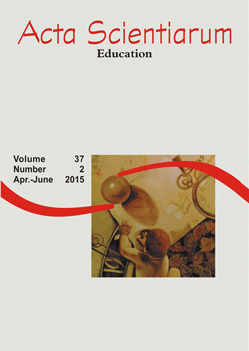<b>A ética da emancipação intelectual
Resumo
Tendo por referência textos de J. Rancière e alguns conceitos matriciais, tais como emancipação e igualdade, propomo-nos explorar as condições e possibilidades de uma ética da emancipação intelectual entendida como uma atitude limiar encarnada numa razão sensível, que inaugura um novo regime de racionalidade, que poderíamos designar como regime dos possíveis. Ao partir do axioma de l’égalité des intelligences (Rancière) como princípio fundador do movimento de emancipação, entendido enquanto processo intermitente e rizomático (Deleuze), gerador de curto-circuitos e linhas de fuga que fraturam a ordem estabelecida dos discursos e das práticas, é nosso propósito sublinhar a ética da emancipação intelectual como condição necessária, ainda que não suficiente, à configuração de uma nova comunidade política assente no reconhecimento recíproco.
Downloads
This work is licensed under a Creative Commons Attribution 4.0 International License.
DECLARAÇÃO DE ORIGINALIDADE E DIREITOS AUTORAIS
Declaro que o presente artigo é original, não tendo sido submetido à publicação em qualquer outro periódico nacional ou internacional, quer seja em parte ou em sua totalidade.
Os direitos autorais pertencem exclusivamente aos autores. Os direitos de licenciamento utilizados pelo periódico é a licença Creative Commons Attribution 4.0 (CC BY 4.0): são permitidos o compartilhamento (cópia e distribuição do material em qualquer suporte ou formato) e adaptação (remix, transformação e criação de material a partir do conteúdo assim licenciado para quaisquer fins, inclusive comerciais).
Recomenda-se a leitura desse link para maiores informações sobre o tema: fornecimento de créditos e referências de forma correta, entre outros detalhes cruciais para uso adequado do material licenciado.
















































